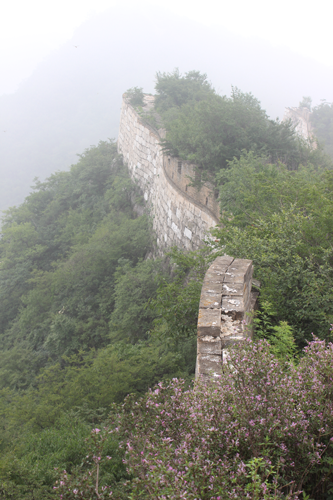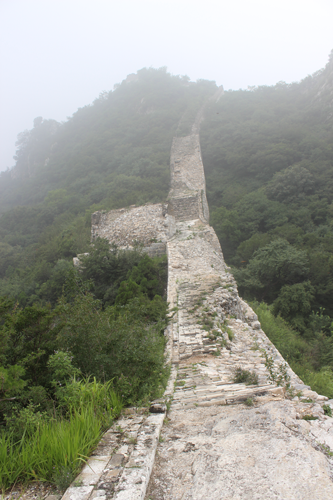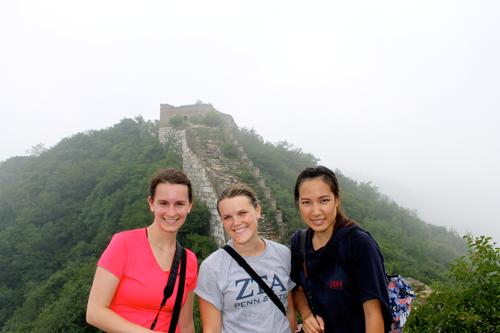This is the next in a series of posts by recipients of the Career Services Summer Funding grant. We’ve asked funding recipients to reflect on their summer experiences and talk about the industries in which they’ve been spending the summer. You can read the entire series here.
This blog is by Joseph Cesare, CAS ’17
This past summer, I was offered the opportunity to stay in Philadelphia and continue research at the Center for Neurobiology and Behavior, a part of the Department of Psychiatry at the Perelman School of Medicine. I had been previously assigned to a project evaluating the development of glutamatergic neural circuitry and NMDA function particularly at the post-synaptic density of dysbindin knockout mice, which has implications to the pathogenesis of Schizophrenia in humans. I continued this project working closely with post-graduates and the primary investigators in my lab, which served as an invaluable learning experience.
During the summer, I honed my skills at several research methods such as the dissection of brain samples, kinase assays, immunoprecipitation, and western blotting. The opportunities our lab offered during lab meetings and summer lectures were another great way to completely immerse myself into the medical field. Our lab conducted weekly meetings to discuss our work and other works of research that have made a recent impact on the field of psychiatric medicine. During these meetings, I regularly presented the findings of our project to our whole lab and discussed ways to improve our methods and reevaluate the direction of our research. Other times, I was given the opportunity to present the findings of other scientists’ work. I found this intellectually challenging, but it was very rewarding to contribute to the field of medicine and well worth the effort put into the project. I now feel more prepared to move forward with a future career in medicine and research, and I am continuing with this project this semester with the hope to publish the work I have done soon.
Reflecting on my experience, I remember not knowing where to start when it came to finding a research position. I was a freshman coming from rural Kentucky without any research experience, and I felt overwhelmed by the multitude of opportunities Penn offered. I read about CURF, Uscholars, and many of the amazing programs that Penn has to offer and asked other students already involved in research for advice. However, I didn’t feel like I was getting a clear picture of where to begin, and I realized that I wasn’t the only one who felt the same way. For that reason, I hope to save you some time and trouble by giving the best holistic piece of advice from someone who recently went through the process.
There are so many different ways to getting a research position at Penn, but here are some concrete examples of where you might begin and how you might go about getting the position you want.
- Get to know your professors in your classes, read their research, and if you find it interesting, send them an email or talk to them after class or during office hours. Let them know you are authentically interested in their research, tell them why, and ask if you could volunteer in their lab.
- The Center for Undergraduate Research and Fellowships office and website is here to help undergraduates get involved with research. Their website has everything from research grants to help fund your project to links to the actual applications for programs. One program, Penn Undergraduate Research Mentoring Program (PURM), is designed for students who do not have any previous research experience.
- Search different department’s websites such as CURF, the medical school, Wharton, the nursing school, the chemistry department, etc., and read about the research of Penn faculty posted on these websites. Narrow down projects that are interesting, read some of the papers that they have published, and send the primary investigator an email. Since this often means sending an email to a complete stranger, include a cover letter introducing yourself, explain why you are interested in research (include any personal details), ask if they have any positions open, give them your availability during the week, and include your resume.
- If you qualify for work-study, the job listings website is an invaluable resource. Go to the listings and narrow your job search to only “research” or “laboratory assistant.” This search will show a list of job openings in a variety of departments at Penn where the primary investigators are actively searching for undergraduates. Each job description has a list of requirements you will need to meet in order to fill the position so pay attention to this.
- If you haven’t already, subscribe to the email distribution lists from Career Services where many opportunities are posted.
Once you get your foot into the door, there may be several other things you must do in order to get a research position. This might include sending your resume, going through a series of interviews, finding grants, and so on. In trying to find my research position, I was required to do all of the above, and honestly, seeking help from Career Services helped me immensely. Please, do not be afraid to ask for help because the feedback you can receive on these details will make a difference.
I hope this helps!





